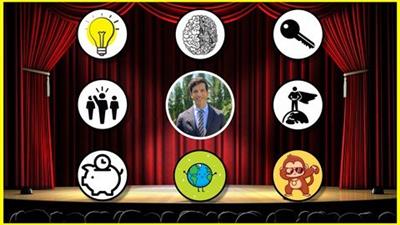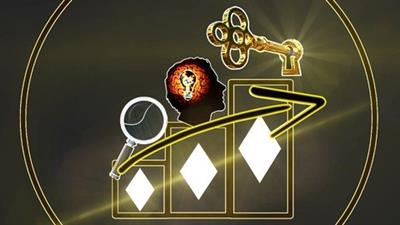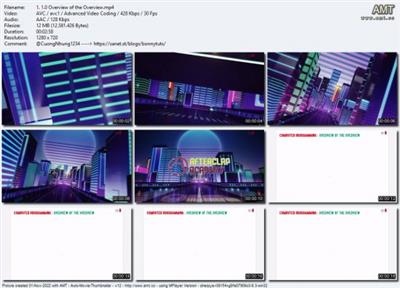
Creative Problem Solving by TAPAMS Management Institute
Posted on 10 Oct 14:11 | by oaxino | 0 views
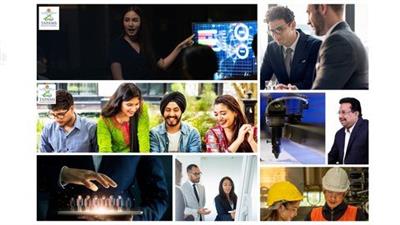
Creative Problem Solving by TAPAMS Management Institute
Published 10/2023
MP4 | Video: h264, 1920x1080 | Audio: AAC, 44.1 KHz
Language: English | Size: 373.85 MB | Duration: 1h 36m
Creative Problem Solving Practices and Methods
Published 10/2023
MP4 | Video: h264, 1920x1080 | Audio: AAC, 44.1 KHz
Language: English | Size: 373.85 MB | Duration: 1h 36m
Creative Problem Solving Practices and Methods
What you'll learn
Creative Problem Solving Skills
Problem Solving Practices
Creativity
Company strategies
Requirements
No requirements or prerequisites
Description
Creative problem solving is a structured approach to finding innovative solutions to complex or challenging issues. It involves thinking outside the box, generating new ideas, and exploring unconventional solutions to problems. This process can be applied to various domains, including business, science, technology, art, and everyday life.Clearly articulate the problem you want to solve. A well-defined problem statement helps focus your creative efforts.Collect relevant data and information about the problem. This can include researching past solutions, analyzing current conditions, and seeking input from others who may have insights.Brainstorming sessions are a common way to generate a wide range of ideas. Encourage free thinking, suspend judgment, and explore even the most outlandish concepts. Quantity is often more important than quality during this phase.Create visual representations of the problem and potential solutions using mind maps. This technique helps you visualize connections between ideas and identify potential paths forward. Analogies involve comparing the problem to something else to gain a fresh perspective. Metaphors can also provide insights by framing the problem in a different context. Divergent thinking involves generating multiple ideas and possibilities, while convergent thinking focuses on narrowing down those ideas to select the most promising ones. Put yourself in the shoes of different stakeholders or users to better understand their perspectives and needs. This can lead to more user-centered solutions. Constraints and constraints removal: Sometimes, imposing constraints can stimulate creativity by forcing you to think within specific limitations. Conversely, removing constraints can also inspire novel ideas. Prototyping and experimentation: Create prototypes or conduct experiments to test your ideas in a practical context. This helps you learn and refine your solutions through trial and error. Cross-disciplinary collaboration: Work with people from diverse backgrounds and expertise to bring fresh perspectives and ideas to the problem-solving process. Visualization techniques: Use visualization tools like sketches, diagrams, or simulations to help conceptualize and communicate your solutions. Mindfulness and relaxation: Sometimes, stepping away from a problem and engaging in relaxing activities can lead to breakthrough insights when you return with a fresh mind. Reverse thinking: Consider the opposite of your assumptions or conventional wisdom. This can lead to unconventional and innovative solutions. Idea selection and refinement: Evaluate the generated ideas based on criteria such as feasibility, impact, and alignment with goals. Refine and combine ideas as necessary. Implementation planning: Once you've identified a creative solution, develop a detailed plan for implementing it. This may involve breaking down the solution into actionable steps and assigning responsibilities. Creative problem solving is not a linear process, and it often involves revisiting and iterating on earlier steps as new insights emerge. It requires an open and flexible mindset, a willingness to embrace ambiguity, and the courage to challenge conventional thinking.
Overview
Section 1: Introduction
Lecture 1 1 . What is Creative Problem Solving ?
Lecture 2 2 . Learning Objectives
Lecture 3 3 . What is a Problem ? , Why Solve Problems ?
Lecture 4 4 . The Problem Solving Process
Lecture 5 5 . Problem Solving Journey and Types of Problem
Lecture 6 6 . Basic Requirements - People , Process , Resources .
Lecture 7 7 . Attitude , Responsibility , Continuous Improvement
Lecture 8 8 . Problem Solving Techniques...
Lecture 9 9 . Example : Analysis to Buy a Car
Lecture 10 10 . Facts and Figures
Lecture 11 11 . Symptoms and Causes , Ishikawa Chart
Lecture 12 SWOT Analysis, 5 Ws
Lecture 13 13 . Getting to the Solution, Solution Effect & Bench Marking
Lecture 14 14 . Why Problem Solving Fails ? and Conclusion..
Anyone who wants to improve your life
Screenshots
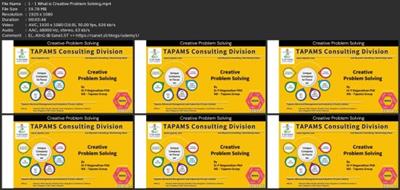
Download link
rapidgator.net:
uploadgig.com:
[b][/b]:
Related News
System Comment
Information
 Users of Visitor are not allowed to comment this publication.
Users of Visitor are not allowed to comment this publication.
Facebook Comment
Member Area
Top News
